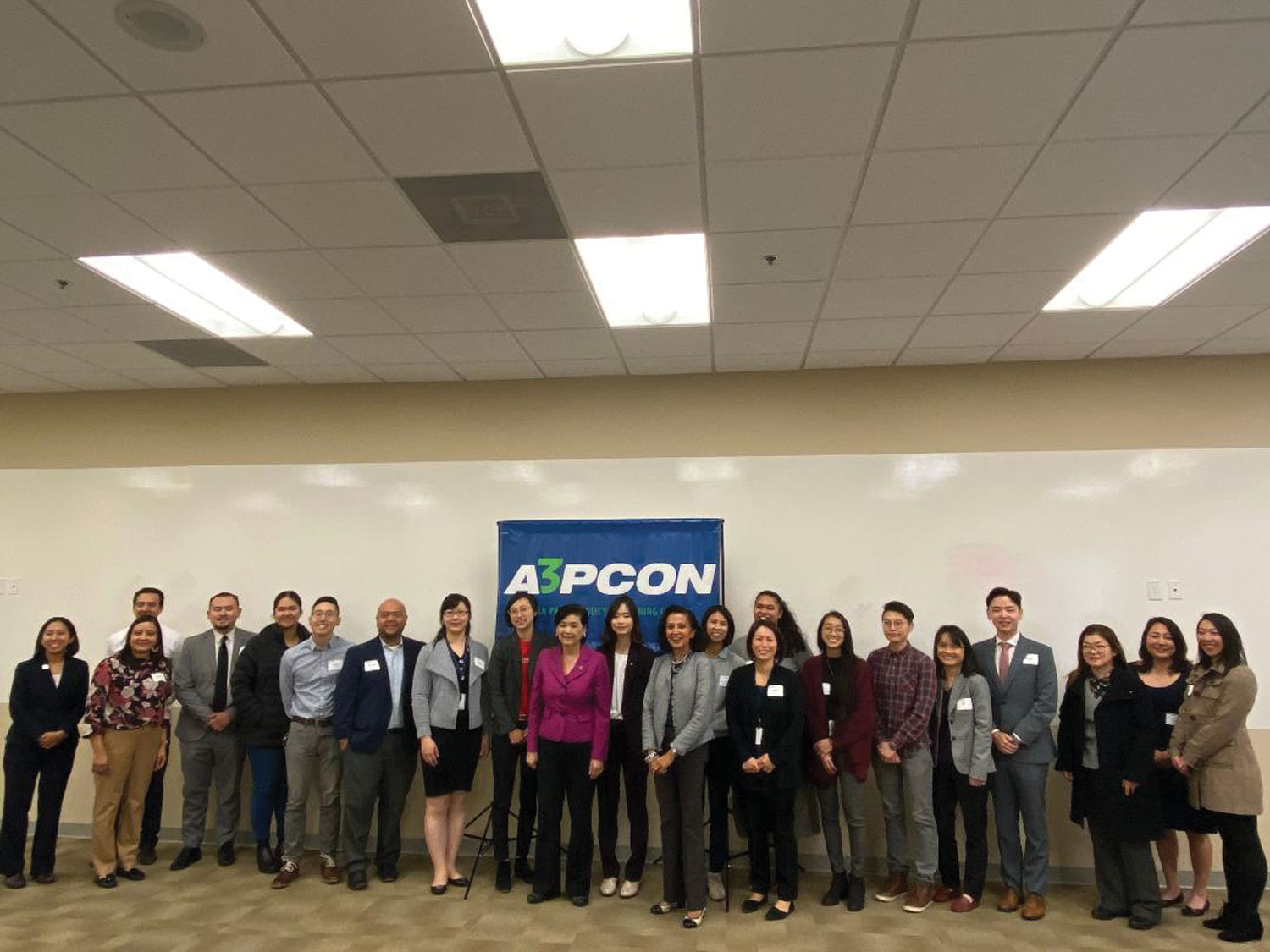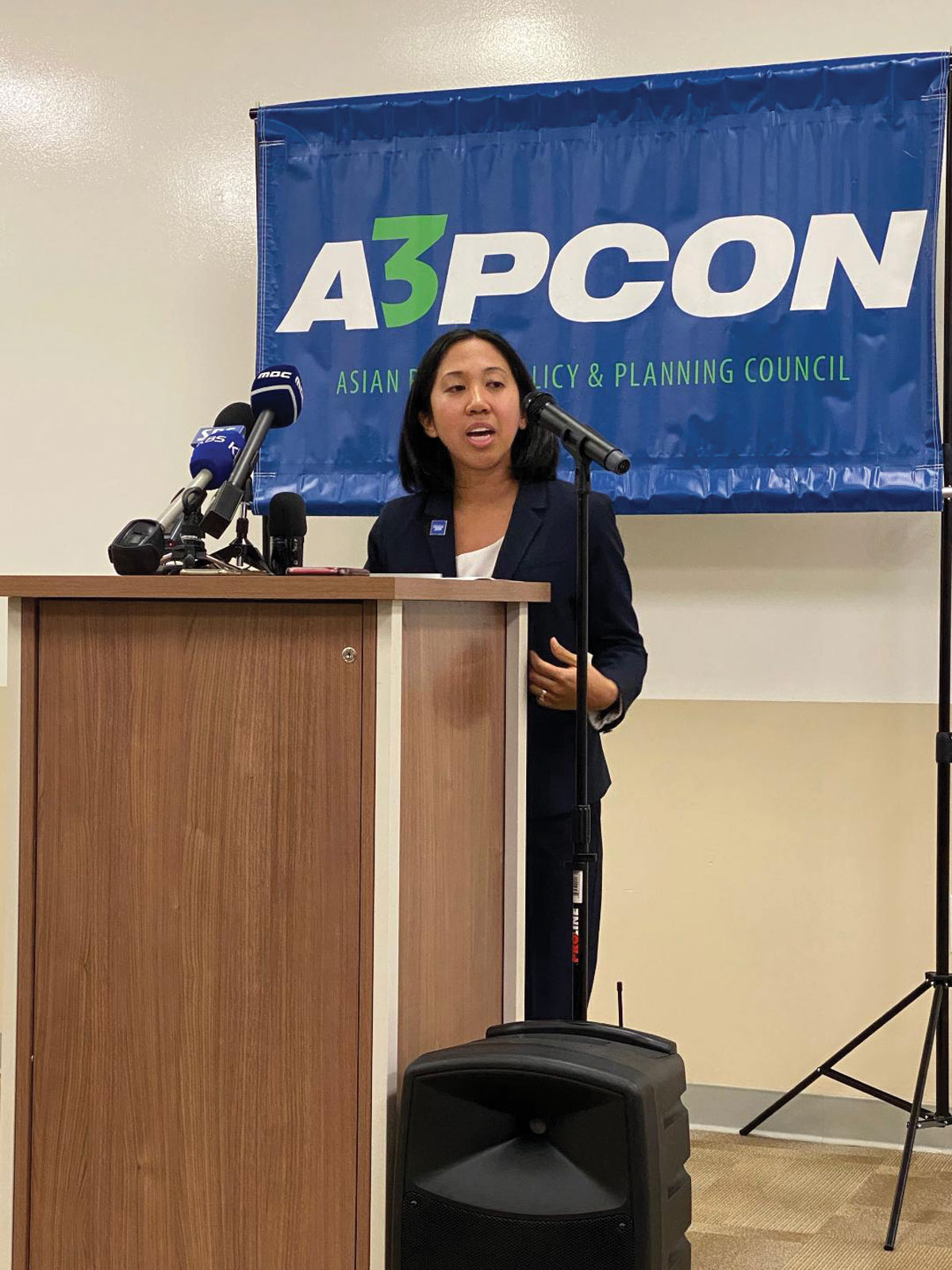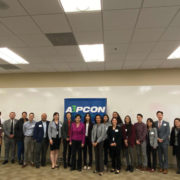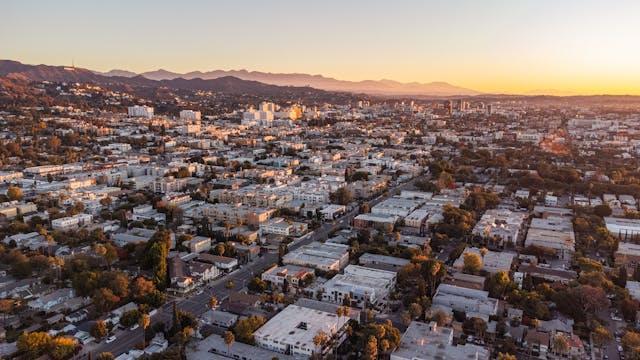
Community organizations in Los Angeles launched a collaborative campaign this week to encourage participation in the 2020 census as Asian American and Pacific Islanders (AAPIs) risk being undercounted.
Led by the Asian Pacific Policy and Planning Council (A3PCON), the AAPI Census 2020 Collaborative consists of 21 organizations that serve 10 communities in over 20 languages, such as Tagalog.
The Filipino American organizations in this effort include the Pilipino Workers Center and the Filipino Migrant Center.
“The work of our collaborative and the success we achieve in ensuring that every AAPI in Los Angeles is counted will be due to the tireless exertion and passionate concern of dedicated individuals who work at our partner organizations,” A3PCON Executive Director Manjusha P. Kulkarni said at a press conference launching the collaborative on Tuesday, January 21.
Representatives from organizations, such as Asian Americans Advancing Justice – Asian Law Caucus, Koreatown Youth and Community Center and the Asian Youth Center, shared ways they are conducting their awareness campaigns and highlighted the funding and services that an accurate census would bring to their communities.
The census — which is conducted every 10 years to count every person living in the U.S. at the time — serves as a basis for distributing more than $675 billion in federal funds annually to state programs in housing, education, transportation, health care and public policy. Additionally, the numbers determine the reapportionment of congressional seats and redistricting.
AAPIs — considered the fastest-growing minority group in the country — are the least familiar with the census and are the least likely to report their intention to fill it out, according to a U.S. Census Bureau study released in January 2019.
Asian Americans and Native Hawaiians and Pacific Islanders (NHPIs) historically have been undercounted for decades to the detriment of their communities and neighborhoods. Estimates show that roughly one in five Asian Americans live in hard-to-count areas, along with one-third NHPIs.
During the 2010 census, the bureau reported that it undercounted 0.1% of the Asian population and 1.3% of the NHPI population.
“The cost of an inaccurate census is serious,” said Rep. Judy Chu (D-CA) on Tuesday. “It means losing our representation in government. Without an accurate count, Southern California is actually the forefront of standing to lose a congressional seat.”
For every person not counted, estimates show that Los Angeles County would lose $2,000 a year per person.
“What we do in this next month will affect us for a decade,” Chu concluded.
Counting for the census began on Tuesday in rural Alaska, more than two months before everyone else in the U.S. in order to reach residents in remote areas.
The rest of the country can respond online, by mail or by phone in mid-March. Households will receive an invitation encouraging them to respond online or by phone or an invitation along with a paper questionnaire. Throughout the month of April, the Bureau will send out reminder letters before census takers start following up in person. The official counts are scheduled to be delivered to the president by December.
The analysis from the Census Bureau found that there are five main barriers that might prevent people from participating: concerns about data privacy and confidentiality; fear of repercussions; distrust in government; lack of efficacy; and belief that there is no personal benefit.
Ivy Daulo, a partnership specialist for the Census Bureau in the Los Angeles region, gave an overview of the questions asked on the questionnaire, such as age, race and sex for each person in a given household.
Addressing the language barriers, the internet and by phone options will be available in 12 non-English languages, including Tagalog, Chinese, Korean, Vietnamese and Japanese; support is provided for 59 non-English languages through glossaries and guides as well. The Census Bureau has also prepared AAPI-related resources available, such as advertising campaigns, brochures, videos and public service announcements.
“It doesn’t matter where they are from, what language they speak, or why they are in the country. The count includes children, and newborn babies, young and old, citizens and non-citizens, new homeowners, renters, and even those experiencing homelessness,” Daulo said.
Concerns about privacy and the use of the information have also been raised by many AAPI community members. Daulo reiterated that the process is easy given the ways to respond; safe because data will not be shared; and important for communities to receive federal funding and be represented.

“Everyone’s responses are safe, secure and protected by law. Your answers can only be used to produce statistics. They will not be shared with other government agencies and cannot be used against you,” she added. “The moment we collect their responses, our goal and legal obligation are to keep them safe.”
Another hesitation about the census has been around the citizenship question, which will not be asked after the Supreme Court blocked the Trump administration from adding it. However, some advocates express that fear still persists in communities about the questionnaire so it’s up to trusted organizations and leaders to reiterate the message of protection.
“Through our outreach with the Filipino American community, there has been some misinformation with regards to the question about citizenship. We inform them that the question is not going to be on the 2020 census,” Daulo told the Asian Journal. “We also have questions about social security numbers, which we also don’t ask for. We want to make sure the community is protected.”
In addition to engaging with the AAPI organizations in LA county, speakers on Tuesday also encouraged community members to consider temporary, part-time positions, such as census takers and field supervisors.
Other organizations in the AAPI Census 2020 Collaborative are Asian Americans Advancing Justice – Asian Law Caucus, Asian Americans Advancing Justice – Los Angeles, API Equality-Los Angeles, API Forward Movement, Asian Youth Center, Center for Asian Americans United for Self-Empowerment, Chinatown Service Center, Empowering Pacific Islander Communities, Khmer Girls in Action, Korean American Coalition, Korean American Federation of Los Angeles, Korean Resource Center, Koreatown Immigrant Workers Alliance, Koreatown Youth and Community Center, Little Tokyo Service Center, South Asian Network, Thai Community Development Center, United Cambodian Community and Visual Communications.






